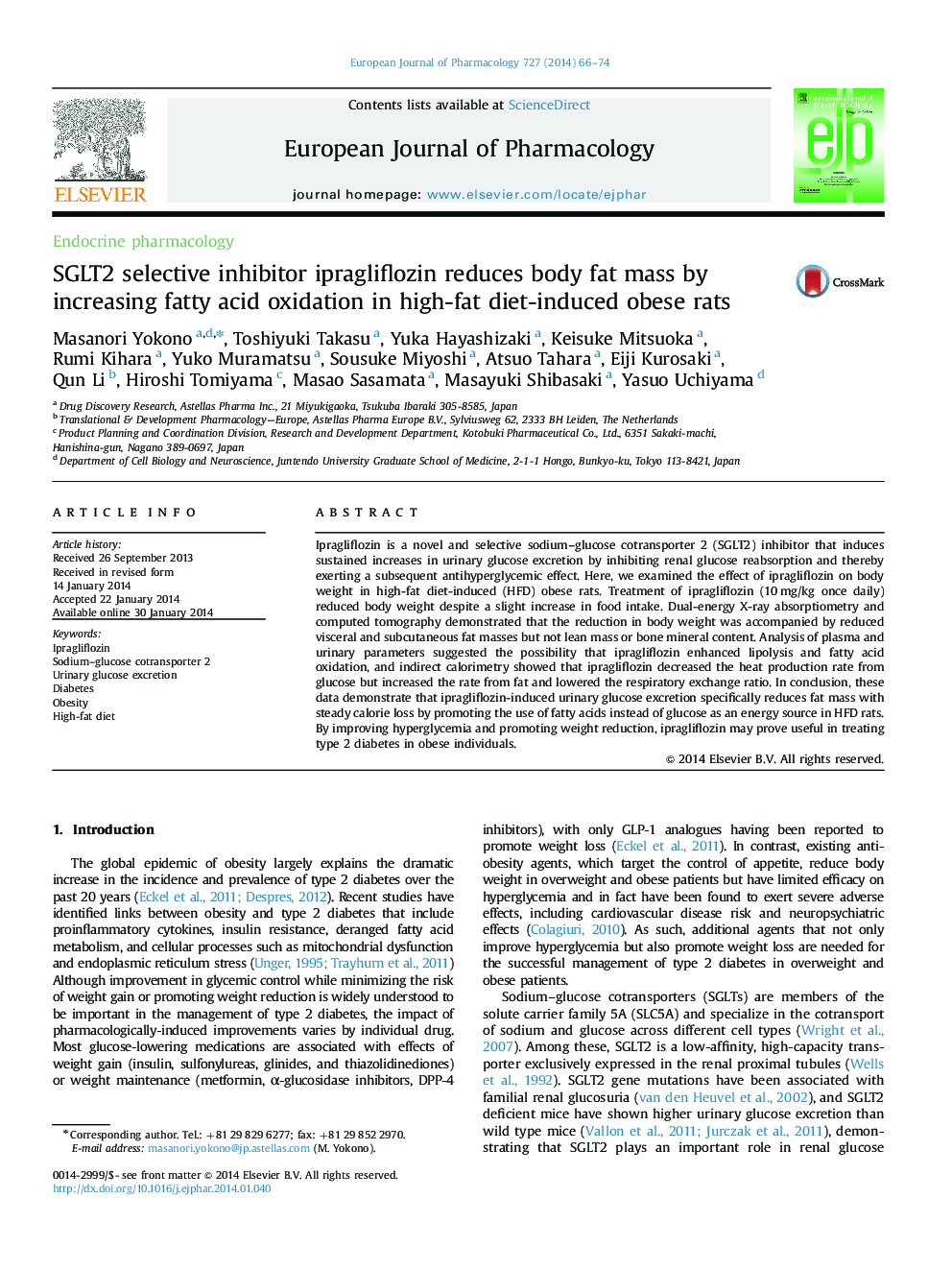| Article ID | Journal | Published Year | Pages | File Type |
|---|---|---|---|---|
| 2531962 | European Journal of Pharmacology | 2014 | 9 Pages |
Ipragliflozin is a novel and selective sodium–glucose cotransporter 2 (SGLT2) inhibitor that induces sustained increases in urinary glucose excretion by inhibiting renal glucose reabsorption and thereby exerting a subsequent antihyperglycemic effect. Here, we examined the effect of ipragliflozin on body weight in high-fat diet-induced (HFD) obese rats. Treatment of ipragliflozin (10 mg/kg once daily) reduced body weight despite a slight increase in food intake. Dual-energy X-ray absorptiometry and computed tomography demonstrated that the reduction in body weight was accompanied by reduced visceral and subcutaneous fat masses but not lean mass or bone mineral content. Analysis of plasma and urinary parameters suggested the possibility that ipragliflozin enhanced lipolysis and fatty acid oxidation, and indirect calorimetry showed that ipragliflozin decreased the heat production rate from glucose but increased the rate from fat and lowered the respiratory exchange ratio. In conclusion, these data demonstrate that ipragliflozin-induced urinary glucose excretion specifically reduces fat mass with steady calorie loss by promoting the use of fatty acids instead of glucose as an energy source in HFD rats. By improving hyperglycemia and promoting weight reduction, ipragliflozin may prove useful in treating type 2 diabetes in obese individuals.
